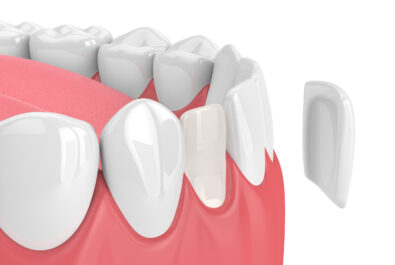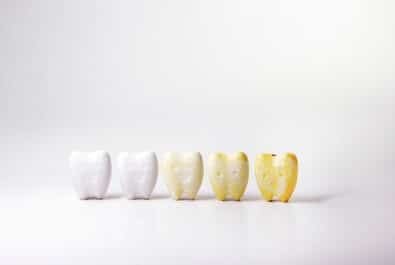Since you were a kid, your parents warned you that eating too much sugar would rot your teeth. As an adult, you’re also aware that eating a diet high in simple carbohydrates and added sugars can harm not only your teeth, but your overall health as well. Today, we’re examining two distinct ways a sugar-heavy diet can negatively impact your teeth and gums and offering some practical tips for enjoying a healthy smile and the occasional sweet treat. (more…)
Why Consultations are a Necessary Part of the Dental Implant Process
You wouldn’t buy a car without doing research or shopping around first. You wouldn’t undergo a medical procedure without discussing all the pros and cons with your doctor. It only makes sense that before you proceed with dental implants, you sit down for an in-depth consultation with your implant dentist. Today, we’re touching upon just a few of the topics you and your dentist will discuss at your dental implant consultation. (more…)
A Brief History of Dental X-Rays
If you’ve ever been to a checkup at the dentist’s office, chances are you’ve had x-rays taken. And, if you’re old enough, you’ve probably had traditional, digital, and maybe even cone beam x-rays taken in your lifetime. X-rays give dentists a powerful imaging tool with which to locate hard tissue problems, like tooth decay and abnormalities of the jaws and sinuses, that are invisible to the naked eye. Dental x-ray technology has advanced rapidly over the last hundred years and today, we’re discussing just a few high points in the history of this interesting and important dental technology. (more…)
New Report Examines Cost Effectiveness of Dental Implants
As far as replacing permanent teeth lost to gum disease, tooth decay, or traumatic injury, dental implants offer a host of benefits over traditional prosthetics like bridges and dentures. Dental implants provide better chewing ability and a more natural look and feel. They last longer than other prosthetics (Fun Fact: The very first dental implants ever placed lasted 40 years). Dental implants can even help you maintain strong jawbone density.
The primary drawback of dental implants, though, is cost. Placing and restoring a dental implant involves a higher upfront cost than bridges or dentures. However, as one recent study has shown, the long term cost effectiveness of dental implants outweighs the competition. (more…)
Three Surprising Ways Smoking Will Ruin Your Smile
It’s not just about bad breath and yellow teeth, although those are two problems that will affect a smoker’s smile. Smoking cigarettes regularly can seriously compromise your oral health, leading to permanent damage and impaired function. Today, we’re touching on three oral health problems that exacerbated by smoking. (more…)
How Do Impacted Third Molars Cause Infection?
As we discussed in our last post, the threat of impacted third molars leading to overcrowding of the front teeth is low and therefore not a good reason – on its own – to justify an extraction. However, the possibility of infection of the area around the wisdom tooth, a condition known as pericoronitis, is very real and threatens the health of your surrounding teeth and even other parts of the body. (more…)
Do Wisdom Teeth Really Cause Overcrowding?
Wisdom teeth, clinically known as third molars, emerge during the late teen years or early twenties. According to the American Academy of Oral and Maxillofacial Surgeons, nine out of ten people have at least one impaction, a wisdom tooth that does not fully erupt from the gums or jaw bone. Impacted wisdom teeth are associated with several serious oral health problems, including an increased risk for decay between the second and third molars, gum inflammation and infection, infections or cysts around the root of the tooth, and, as popular wisdom holds, overcrowding of the front teeth. However, some debate exists regarding whether leaving impacted wisdom teeth in place truly leads to overcrowding. (more…)
Who Should Treat Gum Disease?
Gum disease, the leading cause of adult tooth loss in the United States, affects approximately half of the population, report the Centers for Disease Control. In most cases, this inflammatory disorder is preventable if you practice good at-home oral hygiene and don’t smoke. However, many people have risk factors for gum disease that are outside of their control, like hormonal shifts and family history. If you suspect you have gum disease or if you’ve received a formal diagnosis, knowing who to turn to for treatment can cause some confusion (especially if you look for guidance online). (more…)
A Geography of Tooth Decay
Tooth enamel is a fascinating substance. With a 96% mineral content (primarily crystalline calcium phosphate), tooth enamel can withstand up to 200 pounds of pressure. Thanks to your saliva, tooth enamel can heal itself to a degree through remineralization. However, if an area of tooth enamel loses enough mineral content, bacteria can invade and infect it, creating the cavities we associate with tooth decay. Today, we’re looking at the progression of tooth decay and how the location of a tooth can impact its susceptibility to decay. (more…)
Delicious Double Duty: Three Superfoods that Benefit Your Smile and Your Heart
A rapidly growing body of scientific research underscores what many people around the world have always known: what you eat directly impacts your overall health, from your teeth to your toes. In honor of American Heart Month, we’re discussing three superfoods that can benefit your oral health and your heart health. (more…)














